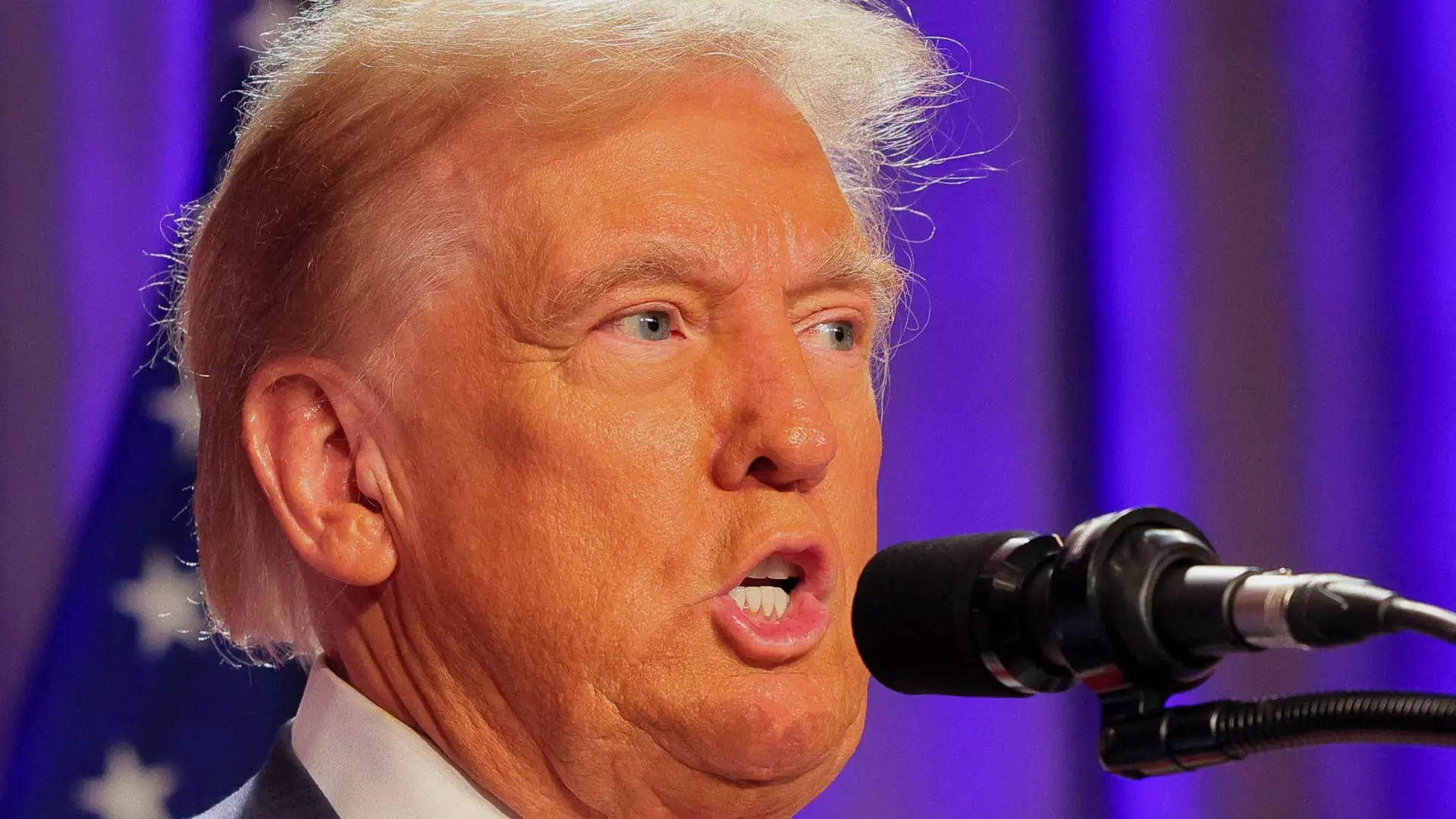In a recent interview with NBC’s “Meet the Press,” Donald Trump detailed his foreign policy views as he prepares to assume the presidency for a second time. His insights on Ukraine, NATO, and relationships with other global leaders shed light on what might be a significant shift in the United States’ approach to international military aid and alliances.
Potential Reductions in Aid to Ukraine
One of the most noteworthy points from Trump’s interview was his indication that U.S. military aid to Ukraine may be scaled back under his administration. This potential reduction raises eyebrows considering the ongoing conflict that has engulfed Ukraine since February 2022. Trump pointed out that while the U.S. has committed over $62 billion in assistance to Ukraine, Europe has reportedly offered only a fraction of that, which he believes is unjust. “Why isn’t Europe in for the same as us?” he tasked reporters during his conversation with NBC News’ Kristen Welker. Such remarks highlight Trump’s long-standing view that allies must share the financial burdens of international conflicts more equally.
Trump credited Ukrainian President Volodymyr Zelenskyy with effectively securing U.S. military aid but implied that the necessity behind these financial commitments may be overstated. He previously labeled Zelenskyy as “maybe the greatest salesman of any politician that’s ever lived,” suggesting that the influx of aid is more a product of persuasive diplomacy than an urgent need for assistance.
Another critical aspect of Trump’s foreign policy commentary revolves around NATO’s existing framework and the financial obligations of its members. Trump has reiterated a stance established during his first term that U.S. involvement in NATO is contingent upon European nations meeting their financial commitments. His question on why European countries are not contributing as significantly as the U.S. underscores a broader concern regarding the balance of defense spending among NATO allies. By referencing the geographical separation between the U.S. and Europe, Trump has positioned the war in Ukraine as a European concern, which, in his view, necessitates greater European investment for the coalition to remain viable.
During the interview, the former president’s insistence that “Europe is in for a fraction” of what the U.S. provides evokes apprehensions amongst political analysts regarding the future stability of NATO and collective defense. If the U.S. withdraws its commitment, it could alter the security landscape in Europe, possibly emboldening adversarial nations.
Engagement with Global Leaders
Trump’s foreign policy is also characterized by his personal relationships with international leaders. His recent meeting with Zelenskyy and French President Emmanuel Macron suggests that he remains engaged in discussions about the ongoing conflicts. Interestingly, Trump mentioned that he had not ruled out communicating with Russian President Vladimir Putin—a relationship he believes is crucial for resolving global tension. He claimed that a quick resolution to the Ukraine conflict could be brokered, reflecting an optimistic view of his aptitude for diplomacy that relies heavily on his rapport with foreign leaders.
Moreover, the president-elect’s remarks regarding China and Taiwan signal a nuanced approach to another geopolitical flashpoint. Despite not committing to defending Taiwan in the event of a China invasion, Trump expressed a desire for diplomacy over conflict. He framed any potential escalation as a negotiable issue, indicating a non-interventionist stance that seeks to prioritize strategic conversations over military action.
In the broader context of global conflicts, Trump referenced the changing dynamics in Syria, commenting on the aftermath of the 13-year civil war there. His assertion that President Bashar al-Assad has fled the country due to diminished Russian support reflects a view that ongoing geopolitical struggles are interconnected. Trump’s statement that Russia’s focus has shifted from Syria to Ukraine sheds light on the complexities of global alliances, suggesting that international attention and resources are finite, and may dictate the outcomes of various crises.
As Trump prepares to take office once more, his statements paint a picture of a potentially isolationist U.S. foreign policy, focused on demanding more robust contributions from allies while scaling back direct commitments. This approach could foster tensions within NATO and vary relations with other nations. Ultimately, the world watches closely as the incoming president defines his administration’s strategy on military aid, global alliances, and conflict resolution, with the potential for significant ripple effects across international landscapes.

